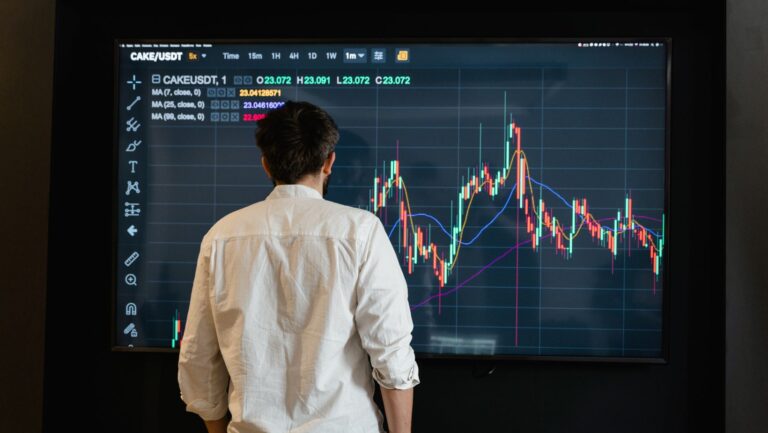Recently, forex trading, or exchanging currencies in the foreign exchange market, has gained popularity among retail traders. According to reports, its market size is $2.4 quadrillion, about 30 times the combined US stock and bonds market.
While this global marketplace can provide enormous opportunities for profit, your success usually depends on factors beyond just skills or strategy. One such factor is being acquainted with the right forex broker.
It is one of the critical elements that may make or break your success in forex trading. A forex broker intermediates between you and the market, providing access to trading platforms, tools, and liquidity.
Hence, this can have significant implications on your trading in terms of transaction costs, execution of orders, handling risks, and more.
Want to know more? Keep reading.
In this article, we will delve into some of the ways through which the forex brokers influence your trading success.
Market Accessibility and Liquidity
The most important way in which a forex broker impacts your trading success is by providing market accessibility. Forex is a decentralized market; liquidity is provided through an aggregate of banks, institutions, and other market participants.
A good broker is connected with multiple liquidity providers, ensuring seamless access to the currency pairs you might want to trade. Moreover, the broker who has the strongest connections with liquidity can offer tighter spreads.
This can make the difference between the bid and ask prices much smaller. So, your transaction cost can go down, especially if you are an active trader.
On the contrary, a broker not having much access to liquidity will result in wider spreads. Such spreads might insinuate higher costs for each trade. As a result, it can nibble away at your profit margin over time.
However, a broker with deep liquidity can ensure that your trades get executed on time at a desired price. In this way, it reduces slippage if the market suddenly becomes highly volatile.
Fee Structure: Spreads and Commissions
A forex broker’s fee structure directly influences your success rate in forex trading. Forex brokers typically make money in one of two ways: by charging a spread or a commission.
- Spreads: Brokers that operate on a spread model make money by offering slightly different buy and sell prices for a currency pair. The difference between the two price spreads essentially amounts to a fee for executing a trade. Tight spreads are, in general, better, as these lower the price of entry and exit.
- Commissions: Some brokers charge by commission per trade, in addition to or instead of a spread. Commission brokers often provide tighter spreads, but they make it up with a fee per trade. If you trade in high volumes, you can benefit from this model because cost savings on the spreads can outweigh commissions.
Other broker fees might include inactivity fees, withdrawal fees, or margin-related charges. So, a broker with a reliable and suitable fee structure can increase your profitability in the long run.
Trading Tools and Platforms
The quality and functionality of a broker’s trading platform significantly impact your profitability. A broker’s platform is one tool you will mostly use to analyze markets, perform trades, and manage risk.
The best brokers offer user-friendly and stable platforms to fit your needs. Some of these tools are:
- Charting Tools: A good trading platform can enable you to use professional charting. Through this, you can change indicators, time frames, and technical analysis tools. You can, therefore, study price movements and pinpoint trading opportunities.
- Order Execution: A broker’s platform skillfully delivers speedy and accurate order execution. It is important because any delay in processing or problems with the server might lead to slippage. Such delays can cause your trade to get filled at an unwanted price, which is disadvantageous for your trading.
- Automated Trading: The platform supports automated trading, which is useful for algorithms or expert advisors. You can thereby rest assured by incorporating it into the system.
- Mobile Trading: In today’s fast-moving environment, you might need to access markets on the go. Hence, a broker with a robust mobile platform offers you the ability to keep up with trades. You can even place orders from your smartphone or tablet without sacrificing functionality.
Regulation and Security
Another critical factor in your trading success is the regulatory environment surrounding your broker. Reputed forex brokers are regulated by financial authorities to ensure that standards of transparency, security, and ethical business practices are met.
The main regulatory bodies include the Commodity Futures Trading Commission (CFTC), National Futures Association (NFA), etc. On top of this, a broker regulated by one or more of these regulators assures you that your money is secure.

Therefore, brokers operating under strict rules can improve an investor’s safety. Regulated brokers are also obliged to segregate customer funds from the firm’s operating funds. It is to not let your investments be affected in the event of the broker’s insolvency.
Risk Management
Evidently, forex trading is closely associated with leverage, where you can take large trading positions by making small deposits. However, while leverage might amplify profits, it also increases risk. That’s why your broker’s policies hold great value.
The amount of leverage can start anywhere from 1:30 to 1:500 and above, depending on the brokers. Hence, you need to understand how much leverage is available.
It is important because high leverage by a broker might lure you into taking on more risks than you can afford to lose. On the other hand, regulated brokers mostly practice limiting leverage to save you from excessive risks.
This is extremely helpful, especially in highly volatile markets. You can also enjoy the strong risk management tools provided by forex brokers, including:
- Stop-Loss Order: Automatically close a trade when it reaches a pre-defined amount of loss to minimize your downside.
- Negative Balance Protection: This means you cannot lose more than what your trading account has. It is particularly important for those trading on leverage.
Transparency
A broker who is trustworthy and reliable can retain your success in the long run. Good brokers provide transparency and honest pricing, trading conditions, and terms of service.

They also give easy access to vital information such as spreads, commissions, and so on. Additionally, a transparent broker ensures their trading platform works reliably. As a result, all your transactions can be fairly executed without manipulation of the prices.
Conclusion
Have you ever considered the effect a Forex broker could have on your trade?
The forex brokers can successfully help you deal with the intricacies of the forex market.
They can extend your market accessibility, offer spreads and commissions, trading tools, investment security, practices risk management, and transparency.
Through such ways, your investment can reach greater profits with reduced risks. Therefore, in forex trading, your broker is more than an intermediary; they become your partner in attaining financial growth.





